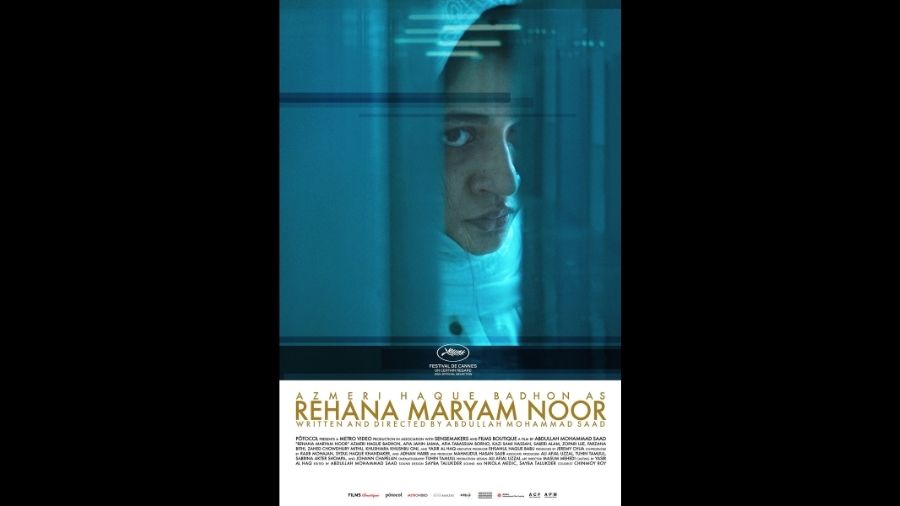His film may not have won a prize but Bangladeshi writer-director Abdullah Mohammad Saad did not return empty-handed from the 74th Cannes Film Festival. Within hours of the premiere of Rehana Maryam Noor the US rights of the film were snapped up.
Rehana Maryam Noor was not only the first ever film from Bangladesh to make it to the official selection of the world’s premier film festival, it was also the sole South Asian entry in the competitive Un Certain Regard section.
It made more than just history. It made a substantial impact, too. New York-based Ryan Krivoshey’s Grasshopper Film and the Mumbai and Los Angeles-based Gratitude Films bought the US rights of Rehana Maryam Noor from sales agent Films Boutique.
Rehana Maryam Noor is set to open in American theatres early next year. The theatrical release will be followed by digital and home video distribution.
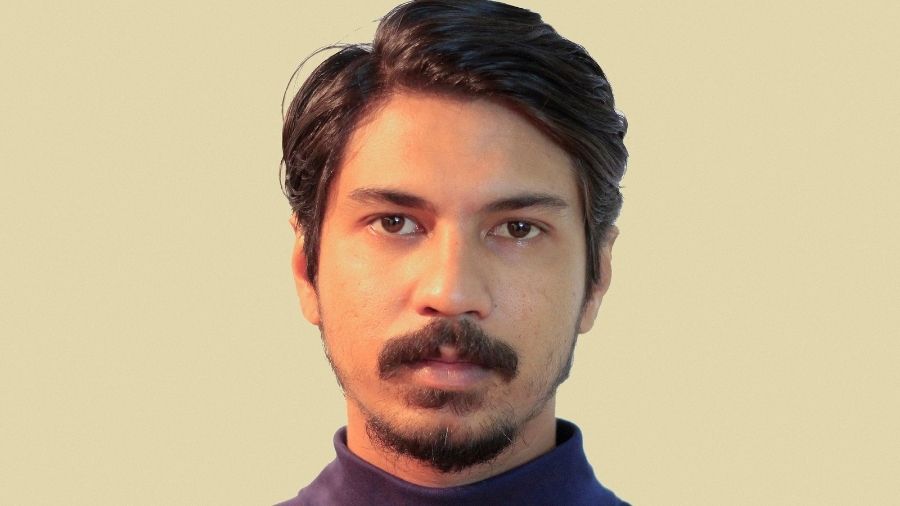
Director Abdullah Mohammad Saad Telegraph Picture
“For me the Un Certain Regard selection is a great honour – and an inspiration,” says Saad. “Making a film calls for a great deal of effort and sacrifice. So, when something like this happens, it really enthuses you to carry on.”
The only Bangladeshi film to have been screened in Cannes before Rehana Maryam Noor was the late Tareque Masud’s Matir Moina (The Clay Bird). The 2002 film had played in the parallel Directors’ Fortnight, not in the festival’s official line-up.
“For my country, it means a lot. Especially because we are in the 50th year of our independence. I am sure Bangladeshi filmmakers will keep making brilliant films and we will be regular in the Cannes selection in the coming years,” he adds.
The eponymous character in Rehana Maryam Noor is a single mother and an assistant professor in a medical college. She witnesses an incident involving a young student and a male professor and refuses to turn a blind eye. Despite all manner of pressures, both personal and professional, she takes it upon herself to ensure that the college administration does not sweep the sexual harassment case under the carpet.
Rehana Maryam Noor is a watershed for cinema not only in Bangladesh but also in South Asia as a whole. In tone and texture, the film steers well clear of the subcontinent’s conventional moviemaking norms. It is layered, complex and not given to putting forth easy psychological constructs. The personality of Rehana and the nature of her fight are both informed with elements that do not lend themselves to simple inferences.
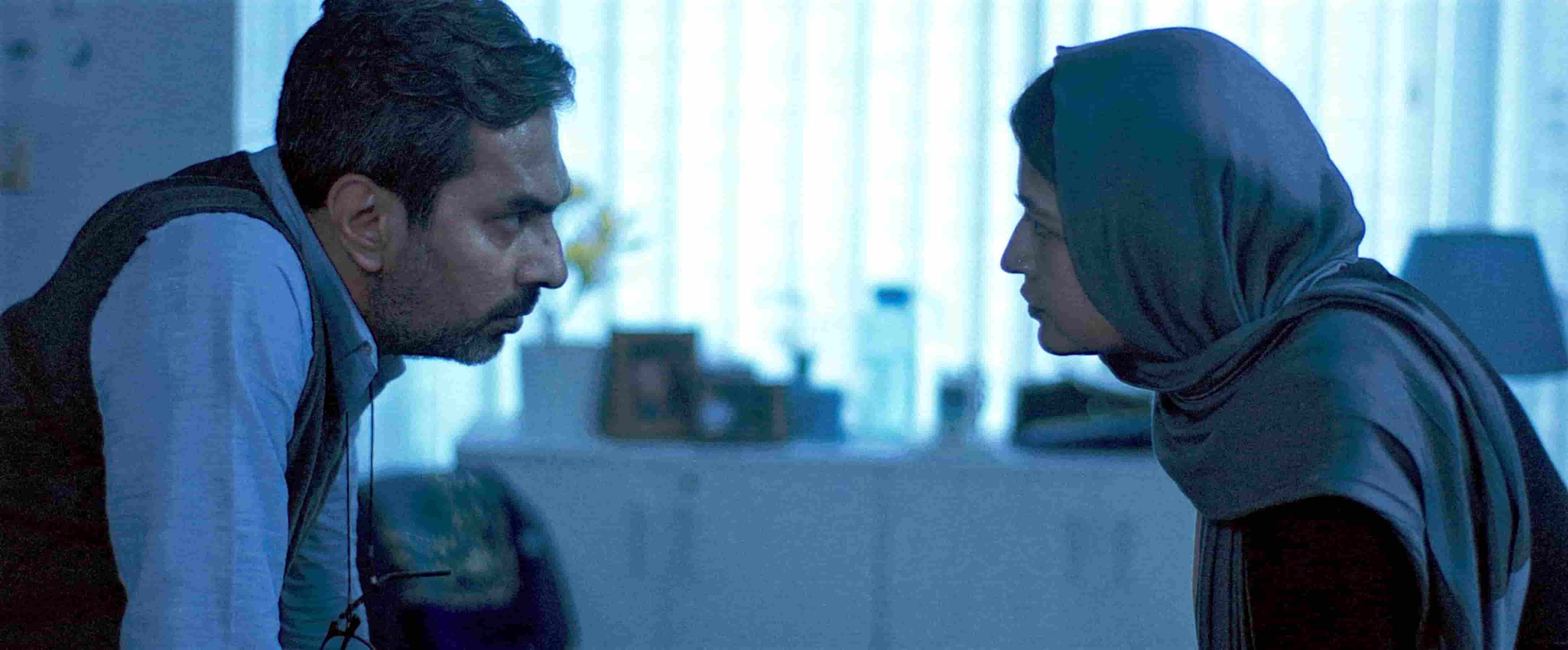
A scene from the film starring Azmeri Haque Badhon in the title role Telegraph Picture
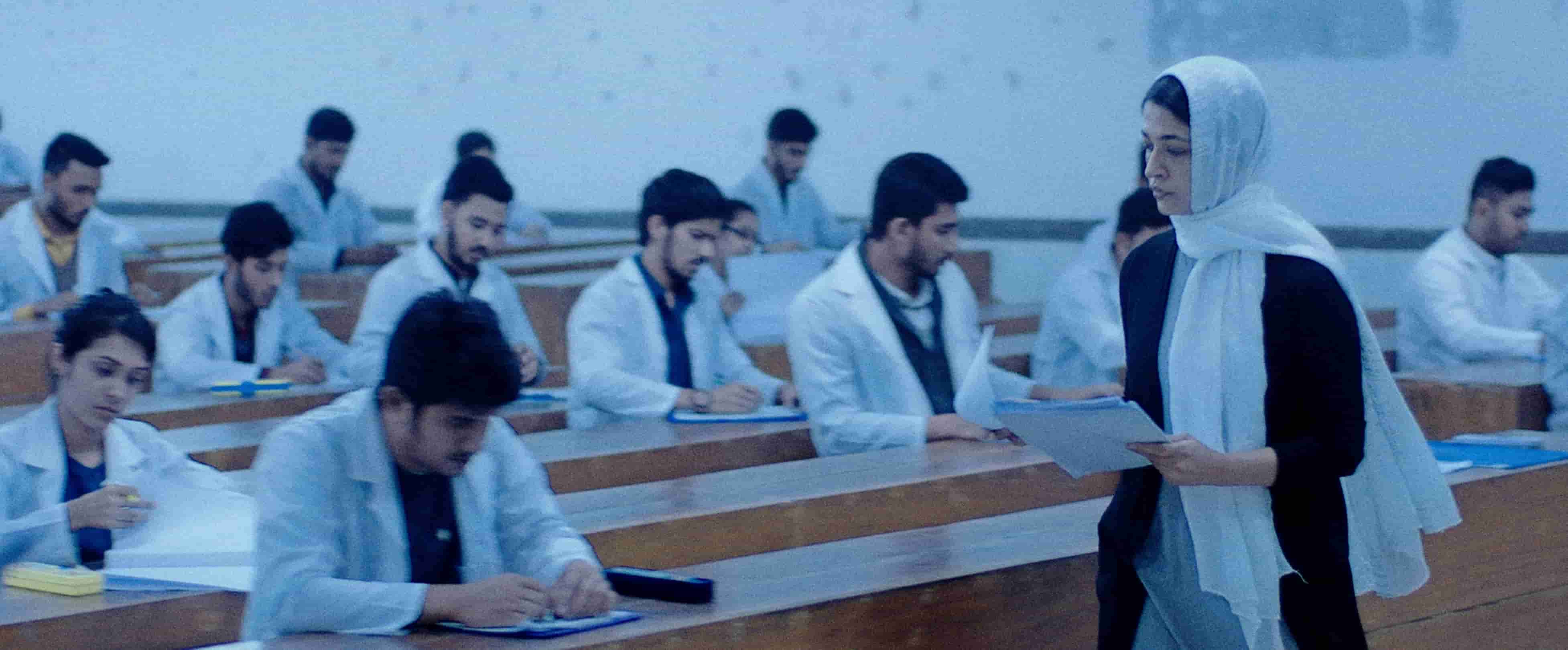
Another scene from the film Telegraph Picture
Says Saad: “I guess it is because I always prefer to leave space for my audiences to draw their own interpretation. I don't try to confirm any particular feelings nor convince them how must they think about my characters.” This explains, more than anything else, why the understated and precisely structured Rehana Maryam Noor packs the power that it does.
Those who have seen Saad’s first film, Live from Dhaka (2016), shot in black and white, would have known what to expect from him. Live from Dhaka centres on a physically challenged man hounded by financial difficulties and emotional turmoil. He is desperate to escape from Dhaka, an urge that only aggravates his misery.
Live from Dhaka gave the world the first glimpse of Saad’s unique sensibility. The film premiered at the Singapore International Film Festival, where producer Jeremy Chua saw it. “I was drawn to his writing and storytelling style, peeling complexity of human nature through enigmatic characters put in difficult, dangerous situations,” says Chua.
“The beauty of Saad’s work is that he is not obsessed with beautiful pictures or perfect aesthetic; he is always looking for authenticity and inner tension,” says Chua, whose film company, Potocol, is the lead producer of Rehana Maryam Noor.
Saad’s new film has nothing in common with Live from Dhaka, a sure sign that he isn’t one to repeat himself. The film, shot entirely in the confines of the hospital in which it is set, is cloaked in a bluish tinge. The visual compositions and the camera angles combine to convey a sense of being trapped in a fishbowl filled with fetid water, which is exactly the way the film’s protagonist feels as she takes on a system bent upon running her to the ground.
Rehana Maryam Noor has catapulted lead actress Azmeri Haque Badhon into the global spotlight. About how she came into Saad’s frame, the filmmaker says: “During the look test, she was exactly what I had been imagining Rehana to be since the time I started writing the film.”
“I could feel from the outset that she connects with Rehana personally,” says Saad. “That's when I became sure of her. She set everything else aside and was absolutely committed to this film from Day One. She opened her heart and soul, and gave it her best.”
About the methods he uses in working with his cast, Saad says: “I try to be specific with my actors and not give them too much information or over-explain an idea. Actors have an innate ability to understand what really a scene requires. I just try to build on that and keep chasing until we hit all the important notes.”
He reveals that “there wasn't much improvisation,” during the five-week shoot. “We rehearsed for nine months. Although it's hard to make sudden changes in a tightly knit screenplay, I like to be open while directing on set. If a better approach comes up, I embrace it,” he says
The kernel of Rehana Maryam Noor emerged from the reality around him, Saad says. “I write from my personal experiences and things that I have been observing closely in my life,” he adds.
Saad did not discover cinema at an early age. He cannot recall filmmakers who might have influenced him to take the plunge. He says: “Watching films in the cinema wasn’t common in my family. It wasn’t as if I absolutely wanted to be a filmmaker. The idea of wanting to be a filmmaker grew into me very slowly. But later when I started to watch films regularly, I became fond of a lot of filmmakers.”
The thirty-something filmmaker already has quite a following himself. And, thanks to the Cannes breakthrough, not just in Bangladesh.
Saibal Chatterjee is a cinephile who has been writing on films for over three decades.
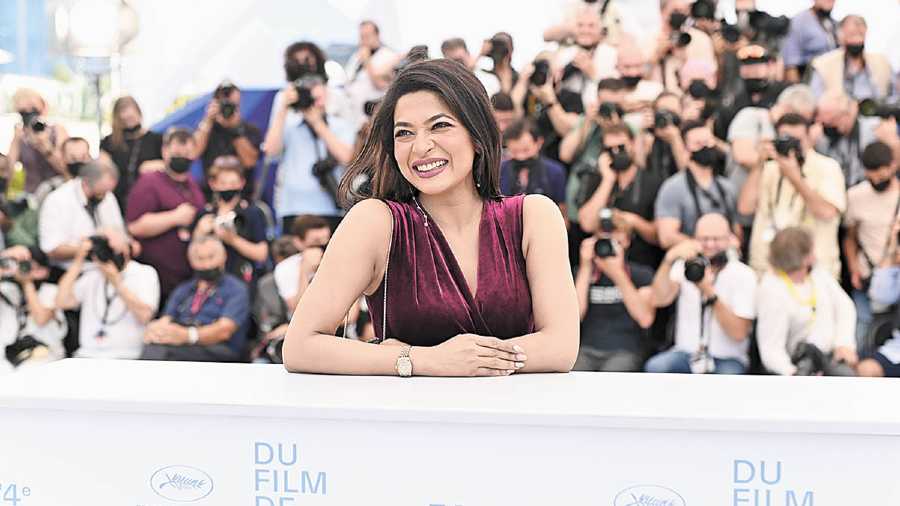
Azmeri Haque Badhon at Cannes Film Festival this year Telegraph Picture
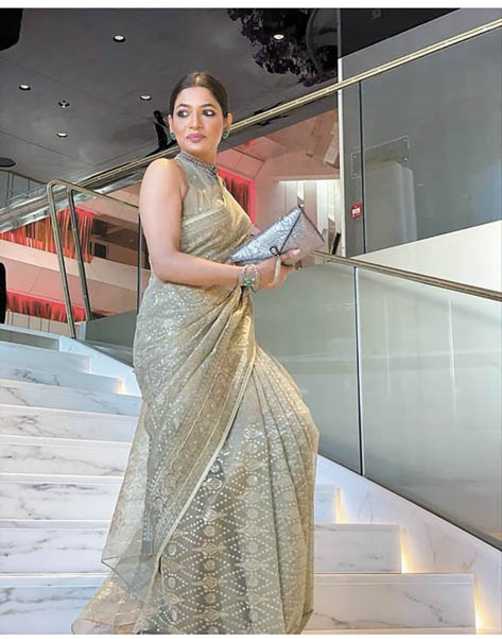
Azmeri Haque Badhon Telegraph Picture

